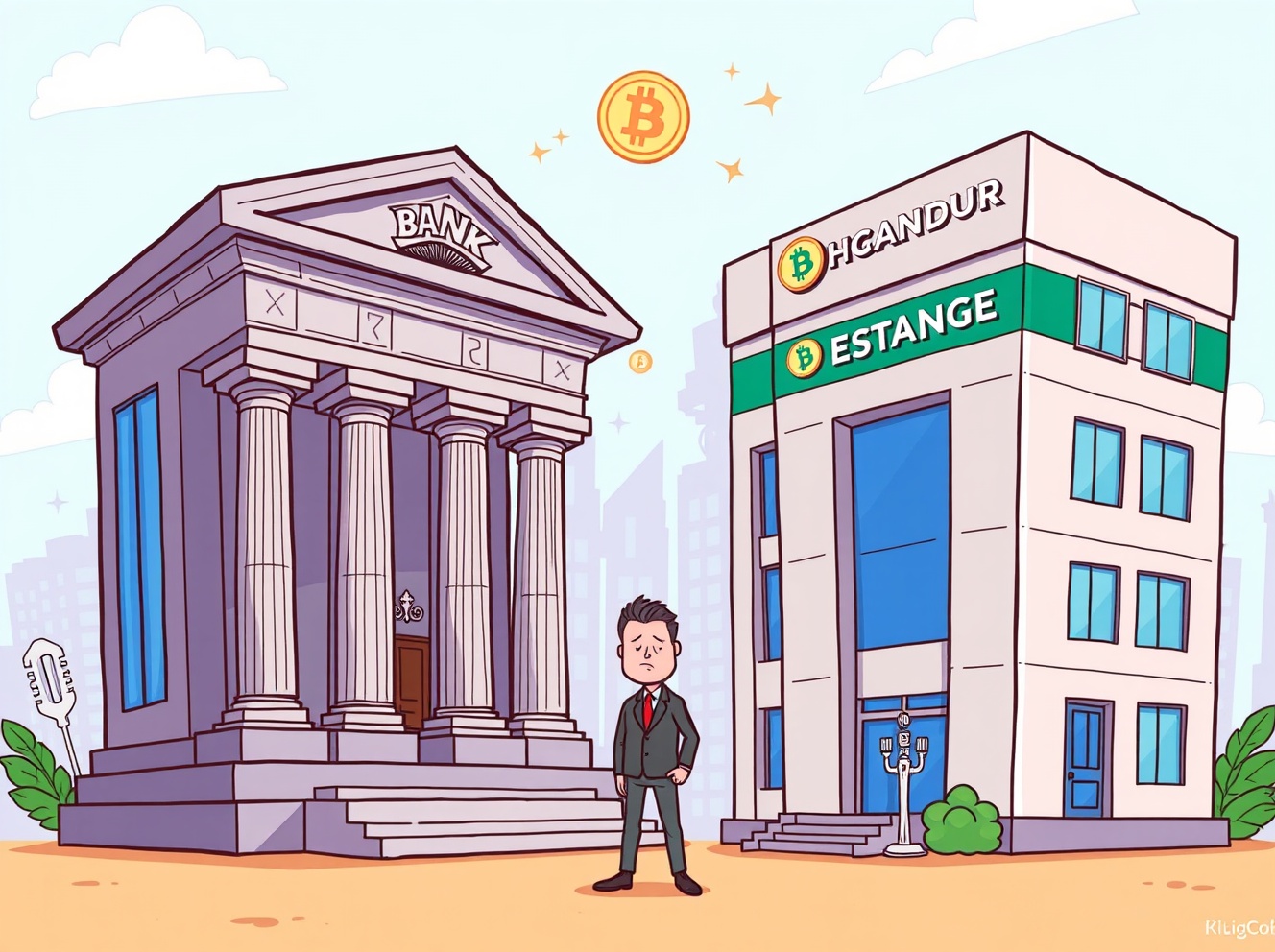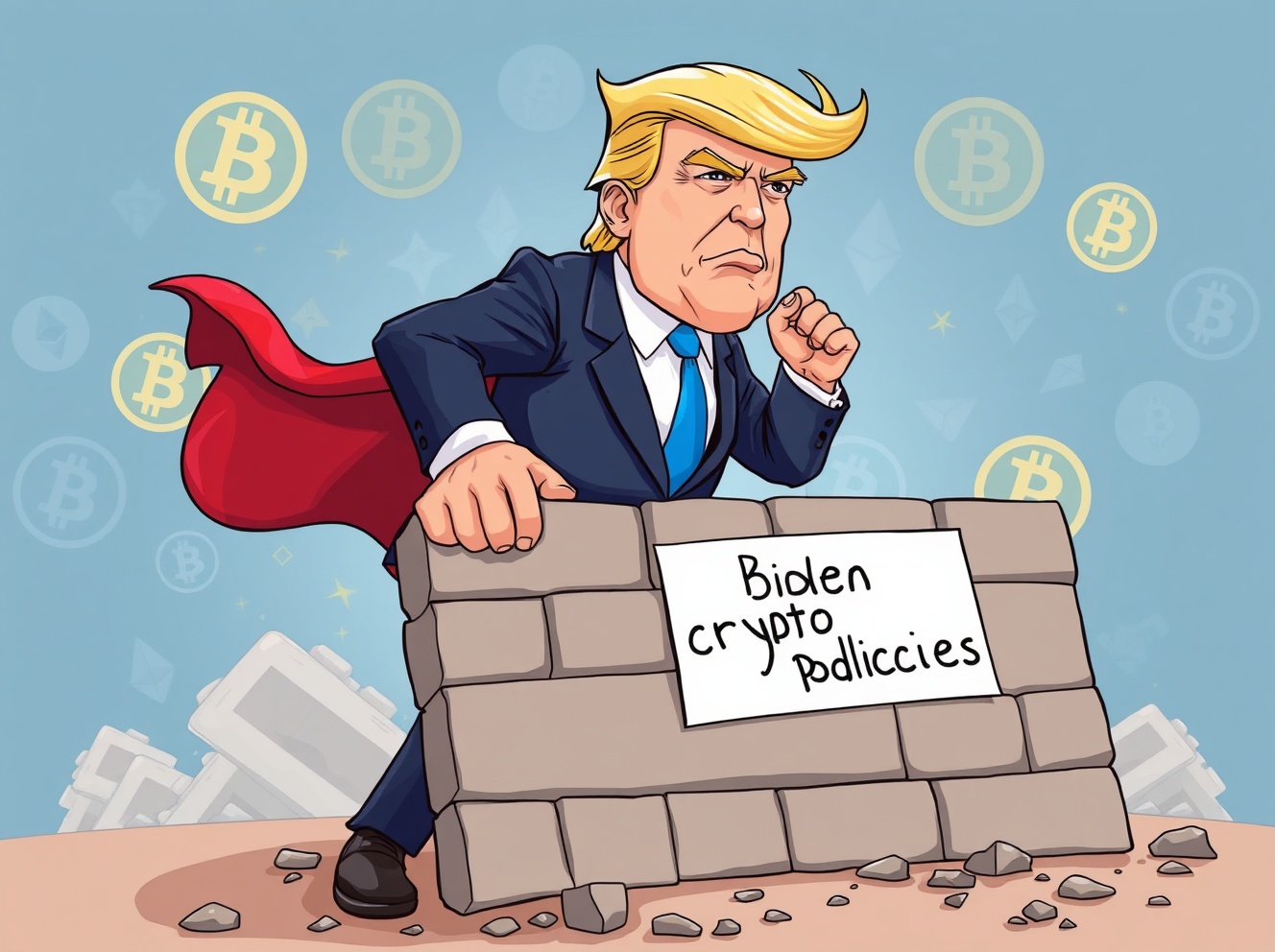
BitcoinWorld Massive Crypto Futures Liquidation: Unpacking the Market Shock The cryptocurrency market just experienced a seismic event, with a staggering crypto futures liquidation totaling $285 million in a single hour. This immediate shockwave follows an even larger tremor: a colossal $2.01 billion worth of futures contracts liquidated over the past 24 hours. These numbers are not just statistics; they represent significant market volatility and impact countless traders. If you are involved in crypto, understanding these events is crucial. What is Crypto Futures Liquidation and Why Does It Happen? At its core, crypto futures liquidation occurs when a trader’s leveraged position is forcibly closed by an exchange. This happens because the trader’s margin balance falls below the required maintenance margin. Think of it like a safety net disappearing. Futures contracts allow traders to speculate on the future price of an asset without owning it directly. They often use leverage, which means they borrow funds to amplify their potential gains. However, leverage also magnifies losses. When the market moves sharply against a leveraged position, the trader faces a margin call. If they cannot add more funds to meet the margin requirements, the exchange automatically liquidates their position to prevent further losses for both the trader and the exchange. Such massive liquidation events, like the recent $285 million in an hour, are often triggered by sudden price swings. These swings can be caused by macroeconomic news, regulatory announcements, or even large institutional trades. Consequently, a cascade effect can occur, where one liquidation triggers another, exacerbating market volatility. The Domino Effect: How Does Massive Crypto Futures Liquidation Impact the Market? When large amounts of crypto futures liquidation take place, it sends ripple effects throughout the entire market. Firstly, the forced selling of positions adds downward pressure on prices, potentially leading to further declines. This can create a ‘liquidation cascade’ or ‘long squeeze’ if many long positions are liquidated, or a ‘short squeeze’ if many short positions are closed. Moreover, these events often lead to increased market fear and uncertainty. Traders become more cautious, and overall trading volume might decrease as participants shy away from high-risk leveraged positions. This can impact investor sentiment, making it harder for prices to recover quickly. For example, a sudden drop in Bitcoin’s price might trigger the liquidation of millions in BTC futures, which then puts more pressure on Bitcoin’s spot price. This, in turn, can affect altcoins, as Bitcoin often dictates the broader market trend. The interconnected nature of the crypto ecosystem means that a significant crypto futures liquidation can be felt across various assets. Navigating the Storm: Actionable Insights for Traders Amidst Crypto Futures Liquidation Understanding crypto futures liquidation is one thing; navigating its aftermath is another. For traders, especially those utilizing leverage, risk management becomes paramount. Here are some actionable insights: Use Stop-Loss Orders: Always set stop-loss orders to automatically close your position if the price reaches a certain level. This limits potential losses and prevents liquidation. Manage Leverage Wisely: Avoid excessive leverage. While it can amplify gains, it dramatically increases your risk of liquidation during volatile periods. Monitor Funding Rates: High funding rates in futures markets can sometimes signal an overheated market, which might be prone to sudden corrections and subsequent liquidations. Diversify Your Portfolio: Do not put all your capital into highly leveraged futures positions. Diversify across different assets and strategies to mitigate risk. Stay Informed: Keep an eye on market news, economic indicators, and regulatory developments. These external factors often precede significant price movements that can trigger liquidations. Ultimately, a disciplined approach to trading, combined with a deep understanding of market mechanics, is your best defense against the unpredictable nature of leveraged trading. Conclusion The recent massive crypto futures liquidation event, totaling hundreds of millions, serves as a powerful reminder of the inherent volatility and risks within the leveraged cryptocurrency market. These forced closures are not just isolated incidents; they are critical indicators of market stress and can have far-reaching consequences. For traders and investors, understanding the mechanisms behind liquidation and implementing robust risk management strategies is essential for long-term success. While the allure of amplified gains through leverage is strong, the potential for rapid losses and forced liquidations is equally significant. Stay vigilant, stay informed, and trade responsibly to navigate these turbulent waters effectively. Frequently Asked Questions (FAQs) 1. What exactly causes a crypto futures liquidation? A crypto futures liquidation is triggered when a trader’s margin balance on a leveraged position falls below the exchange’s required maintenance margin, usually due to a significant price movement against their trade. 2. How can traders avoid liquidation in futures trading? Traders can avoid liquidation by using stop-loss orders, managing their leverage carefully, maintaining sufficient margin, and continuously monitoring market conditions to react promptly to adverse price movements. 3. Are liquidation events good or bad for the overall crypto market? Liquidation events are generally seen as negative in the short term, as they can cause further price drops and increase market fear. However, some argue they can ‘cleanse’ the market of overleveraged positions, potentially leading to healthier, more sustainable growth in the long run. 4. What is the difference between a ‘long squeeze’ and a ‘short squeeze’? A ‘long squeeze’ occurs when many long positions are liquidated, driving prices down further. A ‘short squeeze’ happens when many short positions are forced to close (buy back), causing prices to surge upwards. 5. Does crypto futures liquidation only affect futures traders? While direct financial impact is on futures traders, the cascading effects of large liquidation events can influence spot prices, market sentiment, and overall volatility, thus indirectly affecting all participants in the broader crypto market. Share This Insight Was this article helpful in understanding the recent massive crypto futures liquidation ? Share it with your friends, fellow traders, and anyone interested in the dynamic world of cryptocurrency. Your insights help others stay informed and make better decisions! To learn more about the latest crypto market trends, explore our article on key developments shaping Bitcoin price action. This post Massive Crypto Futures Liquidation: Unpacking the Market Shock first appeared on BitcoinWorld .
Bitcoin World
You can visit the page to read the article.
Source: Bitcoin World
Disclaimer: The opinion expressed here is not investment advice – it is provided for informational purposes only. It does not necessarily reflect the opinion of BitMaden. Every investment and all trading involves risk, so you should always perform your own research prior to making decisions. We do not recommend investing money you cannot afford to lose.
Critical Challenge: US Banking Group Opposes Coinbase’s Trust Bank Charter Bid

BitcoinWorld Critical Challenge: US Banking Group Opposes Coinbase’s Trust Bank Charter Bid The world of finance is constantly evolving, with traditional institutions often finding themselves at a crossroads with innovative new players. Currently, a significant debate is unfolding concerning a major cryptocurrency exchange’s ambition to bridge this gap. This discussion centers around the Independent Community Bankers of America (ICBA) and their strong opposition to a Coinbase trust bank charter application. What’s the Fuss About the Coinbase Trust Bank Charter? Coinbase, a leading cryptocurrency exchange, has applied to the U.S. Office of the Comptroller of the Currency (OCC) to establish a federally regulated trust bank through a subsidiary. This move is seen by many as a step towards greater legitimacy and integration of crypto into the mainstream financial system. However, the ICBA, representing thousands of community banks across the nation, has voiced significant concerns. They recently sent a formal letter to the OCC, outlining their strong opposition to this application. Their core argument revolves around the potential risks that unproven elements of cryptocurrency, such as custody services, could pose to the stability of the traditional financial system. This is a critical point for regulators to consider. Why Are Traditional Banks Concerned About Coinbase’s Trust Bank Charter? The ICBA’s opposition stems from several key areas of concern. They highlight the unique characteristics of the crypto market and its potential impact on established banking practices. Unproven Elements: The association argues that crypto custody, a core service for a trust bank dealing with digital assets, lacks the long-standing regulatory framework and historical stability seen in traditional asset custody. This novelty introduces an element of risk. Impact on Traditional Finance: There’s a fear that if a crypto-focused trust were to face significant issues, it could ripple through and negatively affect the broader, more stable traditional financial system. This concern emphasizes the interconnectedness of financial markets. Market Volatility: The cryptocurrency market is renowned for its extreme price swings. The ICBA specifically stressed that the proposed trust would likely struggle to maintain profitability during a crypto bear market, potentially leading to financial instability for the entity. These points underscore the cautious approach traditional banking groups are taking towards the full integration of volatile digital assets. Navigating the Future: What’s Next for the Coinbase Trust Bank Charter? The application for a Coinbase trust bank charter is a significant development, highlighting the ongoing tension between innovation and regulation. The OCC, as the primary regulator for national banks and federal savings associations, faces the complex task of balancing financial stability with fostering innovation. This decision will have far-reaching implications for both the crypto industry and traditional banking. If approved, it could set a precedent for other crypto firms seeking federal charters, potentially accelerating the institutional adoption of digital assets. Conversely, a rejection would reinforce existing regulatory hurdles. Actionable Insights for the Industry: Regulatory Clarity is Key: The debate emphasizes the urgent need for clear, comprehensive regulatory frameworks specifically designed for digital assets. Risk Management Focus: Crypto firms seeking traditional financial licenses must demonstrate robust risk management practices that address the unique challenges of digital assets. Dialogue Between Sectors: Continued communication and understanding between traditional financial institutions and crypto innovators are crucial for navigating this evolving landscape. The outcome of Coinbase’s application for a Coinbase trust bank charter will undoubtedly shape the future trajectory of cryptocurrency integration into the mainstream financial system. It’s a critical moment for both innovation and regulation, with the potential to redefine how we perceive and interact with digital assets. This ongoing discussion underscores the cautious yet necessary steps being taken to integrate the burgeoning digital asset space into established financial frameworks. The decision by the OCC will be a landmark moment, reflecting the careful balance between fostering innovation and safeguarding financial stability. Frequently Asked Questions (FAQs) Q1: What is a national trust bank charter? A national trust bank charter allows an entity to operate as a federally regulated trust bank, offering services like asset custody, estate planning, and wealth management, typically under the supervision of the U.S. Office of the Comptroller of the Currency (OCC). Q2: Why is Coinbase seeking this charter? Coinbase aims to establish a federally regulated trust bank to provide enhanced security, regulatory clarity, and broader institutional access for its cryptocurrency custody and other digital asset services, bringing it closer to traditional financial institutions. Q3: What are the main concerns of the Independent Community Bankers of America (ICBA)? The ICBA is primarily concerned about the unproven nature of cryptocurrency custody, the potential negative impact on the traditional financial system, and the proposed trust’s ability to remain profitable during volatile crypto bear markets. Q4: How could this decision impact the crypto industry? If approved, the Coinbase trust bank charter could pave the way for other crypto firms to gain federal recognition, accelerating institutional adoption and mainstream integration. A rejection, however, would highlight continued regulatory hurdles for the industry. Q5: What is the role of the U.S. Office of the Comptroller of the Currency (OCC) in this process? The OCC is responsible for chartering, regulating, and supervising all national banks and federal savings associations. Their role is to ensure the safety and soundness of these institutions and to ensure fair access to financial services, making their decision on Coinbase’s application crucial. If you found this article insightful, consider sharing it with your network! Stay informed on the evolving landscape of cryptocurrency and its integration with traditional finance. To learn more about the latest crypto market trends, explore our article on key developments shaping institutional adoption. This post Critical Challenge: US Banking Group Opposes Coinbase’s Trust Bank Charter Bid first appeared on BitcoinWorld . Bitcoin World

Dinari and Chainlink Partner to Enable Onchain S&P Digital Markets 50 Index
Dinari has partnered with Chainlink to bring the S&P Digital Markets 50 Index onchain, making it one of the first institutional-grade benchmarks to operate verifiably on blockchain using real-time data Bitcoin World











